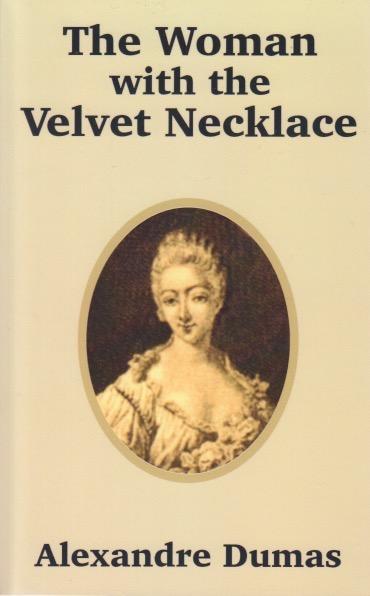
A writer’s life can take many forms. Alexandre Dumas, for example, (the father, just to be clear) had tremendous success with his novels The Three Musketeers and The Count of Monte Cristo. Due to the politics in his lifetime, he was exiled and repatriated. Of the upper classes, he had many affairs. And finally, in 2002, was reinterred in the Panthéon in Paris with the president of the nation renouncing past racism. You see, his father was a creole born in Haiti and apparently for that reason he’d been denied burial with France’s other luminaries. I’ve been reading early European and American novels lately. I just finished Dumas’ lesser known The Woman with a Velvet Necklace, which was originally published together with some other “stories” (this one alone is over 200 pages) in French, of course.
The story itself seems to have been based on a short ghost story by Washington Irving titled “The Adventure of the German Student.” In brief, a student meets his dream girl in Paris during the revolution. She wears a cloth necklace and when it’s removed her head falls off. Tracing the origin of Dumas’ version on the internet took considerable detective work. It involved learning the book in which it was originally published (long out of print), translating the title into French, and reading the French article in French Wikipedia since there’s no English article on it. The story was originally published in 1850, some quarter-century after Irving’s tale, and logic compels one to conclude that either Dumas knew Irving or that Irving was using an old French ghost story that was in circulation at the time.
Since few internet sources exist on the novel, its origins remain somewhat of a mystery. The French Wikipedia article doesn’t address them. We know that Washington Irving was a writer appreciated both in America and Europe, having spent many of his years living in the latter. We also know that Irving borrowed the basis of the story from materials he picked up while traveling. There’s more literary detective work to be done here, but we live in an age when literary scholarship is devalued (it doesn’t bring in money) and until someone who’s an academic gets on this trail, Dumas’ use of Irving will always remain speculative. The novel itself does reveal, after the first forty or so pages, why Dumas was a popular writer. He has a way of drawing the reader in. The story itself is odd and sad but has a message. And, as it turns out, a mystery as well.
